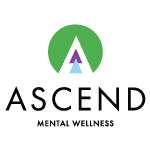ASCEND provides interactive mental health education through onsite training sessions and remote training sessions to schools, businesses, and other community organizations to promote mental health and reduce distress. You can learn about the specifics below. Any needs not addressed by the following list can be fulfilled and tailored to each community entity.

Community Mental Health Training
Mental Health First Aid
A 6.5-hour training that teaches participants a five-step action plan to help a person suffering from a mental health crisis. We offer Mental Health First Aid specifically designed to assist the following: Youth (ages 10-17), Emerging Adults (college-aged), Adult (18+), Elderly, Veterans, and Public Safety. Maximum of 30 participants per training. Virtual or on-site versions are available.
Mental Health and Wellness 101
Presented in 30, 60 and 90-minute training sessions that can be tailored to meet scheduling needs and for a specific audience.
Goals of the Training:
- Increase basic knowledge of mental health to help reduce stigma
- Understand mental health as a continuum of wellness that defines us every day — it is illness, recovery, and all of the space in between
- Promote wellness, treatment-seeking behavior, recovery, and self-care
Introduction to Trauma Sensitive Agencies, Services and Workplaces
This 2-hour training describes major findings of the Adverse Childhood Experiences (ACE) study and assists individuals in identifying the Physiological mechanism of the stress response. Participants will be able to describe short- and long-term effects of stress on the body and brain, with the goal of learning how to create trauma-informed agencies, services, and workplaces.
Helping the Helpers
This 1-hour training discusses compassion fatigue, burnout, and vicarious trauma for anyone who works with people, especially in human services.
Bridges out of Poverty
This workshop (Time varies from 2-6 hours as available) is a comprehensive approach to understanding poverty. Bridges Out of Poverty uses the lens of economic class and provides concrete tools and strategies for a community to alleviate poverty. Participants will review poverty research, examine a theory of change, and analyze poverty through the prism of the hidden rules of class, resources, family structure, and language.

School Centered Training
Introduction to Trauma-Sensitive Schools
This 2-hour training describes major findings of the Adverse Childhood Experiences (ACE) study and assists individuals in identifying the physiological mechanism of the stress response. Participants will be able to describe the short and long-term effects of stress on the body and brain with the goal of learning to create trauma-informed schools.
AFSP-More than Sad: Teen Depression
This 1-hour training is intended for teens, parents, and educators. It includes a film that teaches about depression, demystifies treatment, and encourages students who are struggling to seek help. It helps to educate people about mental health conditions, warning signs of suicide, and the steps we can take to get help for at-risk students.
AFSP-Talk Saves Lives
This 1-hour training is for anyone wanting to learn more about suicide prevention. It provides information on common myths and teaches about warning signs, risk, and protective factors and resources. This is great training for parents, community members, and school staff. This training is a great compliment to AFSP- More than Sad: Teen Depression training.
Suicide Safety for Teachers
This 1-hour training is designed to meet the basic suicide prevention awareness needs of school faculty and staff. The training:
Reviews warning signs of suicide
- Outlines the critical and limited role of faculty
- Addresses school procedures for referring students
- Provides guidance on addressing the topic of suicide in the classroom
- Reinforces protective factors
Lifelines: A Suicide Prevention Program
This is a comprehensive suicide prevention program that targets the entire school community, providing suicide awareness material for administrators, faculty, staff, parents, and students. While Lifelines provides basic information about youth suicide, it is primarily directed at helping everyone in the school community recognize when a student is at the potential risk of suicide and understand how and where to access help.

